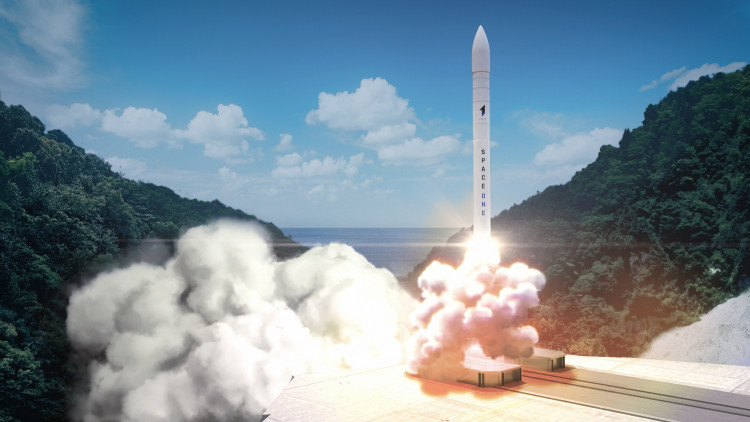In a setback for Japan's nascent commercial space industry, the Kairos rocket developed by startup Space One exploded seconds after liftoff on Wednesday, triggering its self-destruct system when an undisclosed problem was encountered. The rocket, touted as the first from a Japanese private company to attempt to put a satellite into orbit, left behind debris and a forest fire near the launch site in western Japan.
Livestream videos captured the dramatic moment when the 60-foot-long, 23-ton rocket erupted in a plume of smoke and flames shortly after its first-stage engine ignited at 10:01 p.m. Eastern time from Spaceport Kii in the mountainous Kii peninsula of Wakayama Prefecture. Firefighters quickly extinguished the resulting forest fire, and no injuries were reported in the vicinity of the launch pad, according to Shuhei Kishimoto, governor of Wakayama prefecture.
The Kairos rocket was designed to self-destruct when it detects errors that could lead to a crash and endanger people on the ground. However, Space One officials have not specified what triggered the rocket to abort the mission so early into its launch. "We are taking what happened in a positive way and remain prepared to take up the next challenge," Space One President Masakazu Toyoda told reporters at a news conference following the incident.
The rocket was carrying a government-made satellite intended to gather intelligence about rocket launches from neighboring North Korea and serve as a backup for other satellites, according to the Cabinet Satellite Intelligence Center, a branch of Japan's spy agency. The satellite's failure to reach orbit represents a setback for Japan as it seeks to become a player in the growing commercial space transportation market.
Space One, established in 2018 with the backing of four Japanese investors, including Canon Electronics, IHI, Shimizu, and major banks, aims to provide a commercial space transportation service for sending satellites into orbit. The company's goal is to ramp up production of the Kairos rocket to support as many as 20 launches a year, although few details have been disclosed about potential customers for the vehicle.
The launch attempt came amidst a global trend of commercial companies partnering with government space agencies on various space-related projects. Recent examples include Intuitive Machines' successful landing of an uncrewed robotic craft on the lunar surface as part of a NASA-funded mission and the return of four spacefarers from the International Space Station in collaboration between NASA and SpaceX.
Despite the setback, Space One officials remain optimistic about the future of their endeavors. "We are taking what happened in a positive way and remain prepared to take up the next challenge," Toyoda said, emphasizing that the experience will help the company learn from its mistakes and improve future attempts.
An investigation into the cause of the malfunction is currently underway, according to Space One Director Mamoru Endo, who declined to specify why company officials believe the rocket triggered its self-destruction system. As Japan continues its efforts to enter the commercial space transportation market, the lessons learned from the Kairos rocket's failed launch will be crucial in shaping the nation's future space endeavors.
The explosion of the Kairos rocket serves as a reminder of the challenges and risks inherent in the rapidly evolving field of commercial spaceflight. As private companies and government agencies continue to collaborate and push the boundaries of space exploration, setbacks like this are likely to be part of the learning process on the path to success.
AP and USA Today also contributed to this report.





